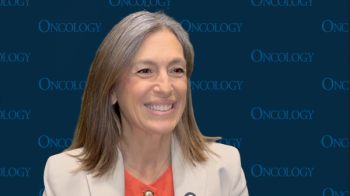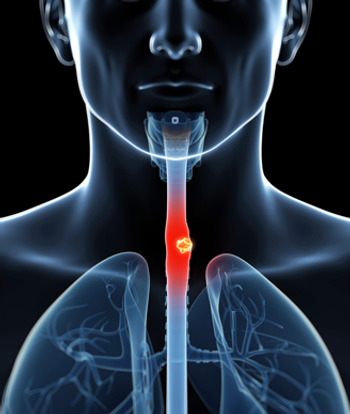
- ONCOLOGY Vol 22 No 8
- Volume 22
- Issue 8
Early Esophageal Cancer and Precancer Eliminated With Nonsurgical Treatment Combination
BARRX Medical, Inc, a global technology leader in treating Barrett's esophagus, announced the publication of two related European trials that report a 100% eradication rate for early esophageal cancer and precancerous dysplasia using endoscopic resection followed by ablation therapy with the HALO ablation system. Barrett's esophagus is a complication of gastroesophageal reflux disease (GERD) and is a known risk factor for esophageal cancer, the fastest growing cancer in the Western world.
BARRX Medical, Inc, a global technology leader in treating Barrett's esophagus, announced the publication of two related European trials that report a 100% eradication rate for early esophageal cancer and precancerous dysplasia using endoscopic resection followed by ablation therapy with the HALO ablation system. Barrett's esophagus is a complication of gastroesophageal reflux disease (GERD) and is a known risk factor for esophageal cancer, the fastest growing cancer in the Western world.
Results of the two studies were published in the May issue of Endoscopy. The investigators enrolled patients with Barrett's esophagus having early cancer and/or advanced dysplasia, used endoscopic resection to remove focal abnormal areas, then used endoscopic ablative therapy with the HALO system to eradicate all remaining diseased tissue. At 1- and 2-year follow-up, respectively, in each trial, all patients were cured of their esophageal disease.
Could Become Preferred Strategy
"This data confirms that early cancer and advanced dysplasia can be safely and effectively treated with this non-surgical approach using endoscopic resection and ablation," said Amsterdam Medical Centre (AMC) gastroenterologist and Professor of Medicine Jacques Bergman, md, who led the study in Amsterdam, the Netherlands. "We're confident this treatment can reduce the need for high risk surgical procedures and become the preferred strategy for treating patients with Barrett's esophagus and early esophageal cancer."
A related study presented last year in May 2007 at an international gastroenterology meeting reported that ablative therapy, as used in this trial, eradicated all the associated genetic abnormalities of the early cancer and dysplasia in treated patients.
A current standard of treatment for advanced dysplasia and early cancer of the esophagus is esophagectomy. This surgical procedure is often associated with significant patient morbidity and even mortality. Once cancer occurs, 5-year survival is poor.
Articles in this issue
over 17 years ago
‘Futile Care’: An Oncology Nurse’s Perspectiveover 17 years ago
Granulocytic Sarcoma in a Patient With Myelodysplastic Syndromeover 17 years ago
The Promise of Cryotherapy in Prostate CancerNewsletter
Stay up to date on recent advances in the multidisciplinary approach to cancer.





































